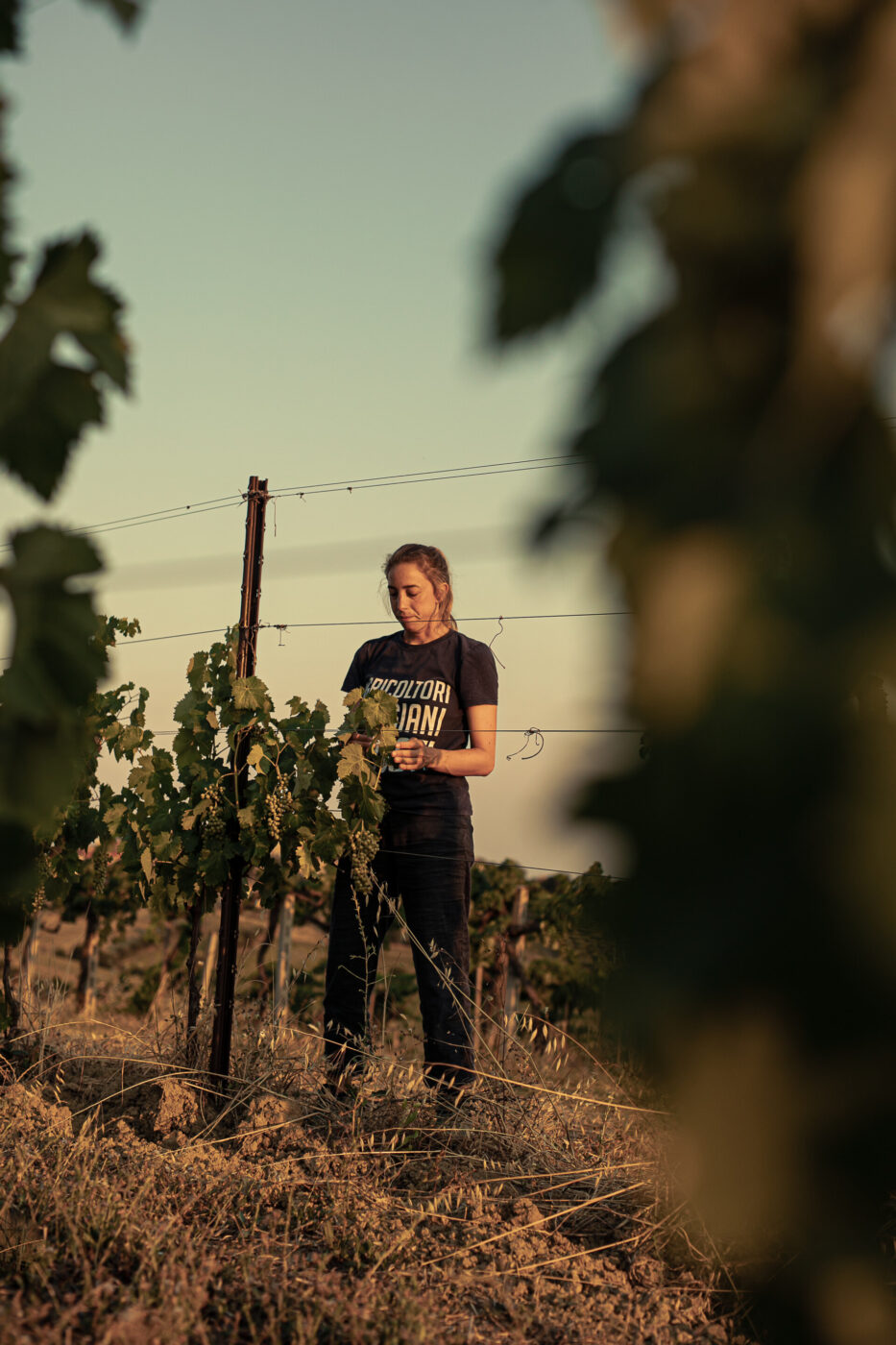Tell us a bit more about your background and your current work
I’ve grown up in between the vines. My family has been making wine for five generations now; my grandfather was the one who really started to embrace the vines growing and bringing wine closer to our hearts. So I started to be absorbed by it while a little girl and, growing up, I started traveling to spread the Abruzzo Pepe Gospel around the world.
I studied between home, Paris, and Burgundy to go deeper into winemaking and agricultural practices, and I took over vinifications at Casa Pepe in 2020. With my family, I run a vine-focused estate, but we also grow ancient wheats, legumes, and herbs. I have a young and passionate team and together we take care of our vineyards with biodynamic agriculture and make wine with ancient methods, aiming to create authentic and age-worthy Trebbiano and Montepulciano d’Abruzzo.
What’s a project or initiative particularly close to your heart that you’ve started since taking over Casa Pepe?
A geology study for viticulture in Abruzzo–the very first one to be undertaken in our region–together with a wine-specialized geologist from California, Brenna Quigley. The first results of these studies led me to single vineyard vinification at Pepe, which I started in 2020. (You can go deeper here.)
Why did you choose to stay in Italy?
I guess a sense of belonging. Grandfather Emidio was so good at passing on the passion without the heavy sense of responsibility, leaving us free to travel and study around the world. So, when the time comes, the passion pulls you back to where you belong.
What do you see for the future of the wine industry in Italy?
I guess for the winegrowers in my generation, climate change is the biggest challenge; exchange and collective thinking is more important than ever to find intelligent solutions and move fast to cope with unpredictabilities. I think there is a positive element in the challenge, and I’m sure the wines coming from the next decade will be incredibly interesting.
What are some such solutions you’ve implemented at your vineyards?
I’ve been planting the new vines in a system of agroforestry: to grow more volumes to create shade and enhance more root synergies. From 2021 onwards, I’ve started experimenting using unpasteurized raw milk sprayed on the vine’s leaves to fight vineyard diseases such as oidium and mildew. I like the idea of being able to protect my vineyards with an agricultural product instead of using copper, which can be hard for the soil to metabolize in the long term. Also the need of being more gentle and adaptive with disease pressures in a warming climate condition is key to understand for the new generation of viticulturists.
The next [solution] I’ve started to work on is rethinking water management and designing the surrounding landscape in order to have proper water supplies during dry vintages/global warming related droughts: keylines, small lakes, and ponds all around the estate.
What are the greatest obstacles and satisfactions that you face working in this country?
The pace can be slow in Italy, so if you’re trained in different countries, this can be an obstacle when planning. At the same time, the way we are trained to work with care, grace, and a sense of beauty can be such a joy to watch.

